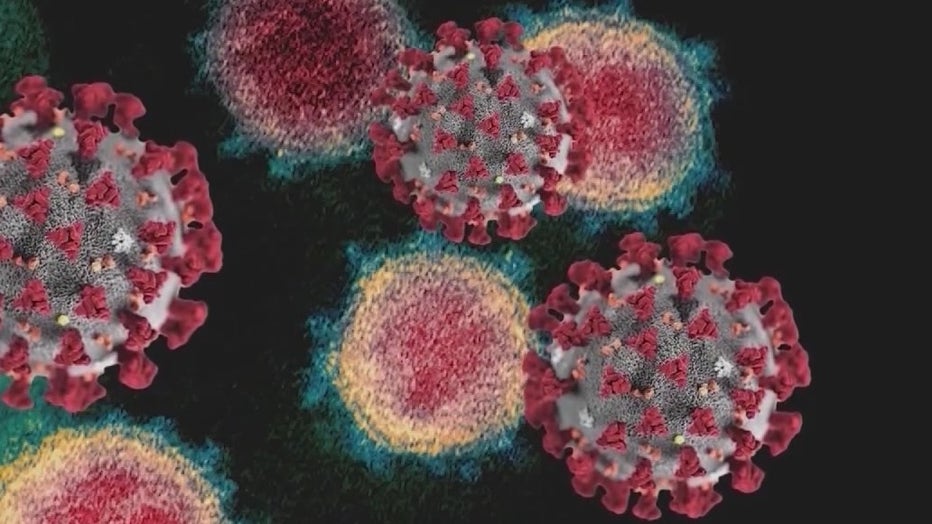Can you catch COVID-19 again? Doctor warns omicron BA.5 subvariant escapes immunity

Can you catch COVID-19 again? Doctor warns omicron BA.5 subvariant escapes immunity
A top COVID researcher says he's worried about the COVID-19 BA.5 subvariant. Doctors say it's highly transmissible and responsible for several breakthrough cases. Pharmaceutical companies are working to develop variant-specific vaccines that may be more effective.
DALLAS - A new mutation of the omicron variant is causing a summer surge of COVID-19 cases across the country. It may be reason to worry.
A top COVID researcher says he's worried about the COVID-19 BA.5 subvariant.
Doctors say it's highly transmissible and responsible for several breakthrough cases.
Pharmaceutical companies are working to develop variant-specific vaccines that may be more effective.
CDC Director Dr. Rochelle Walensky says BA.5 is a variant of the original omicron strain. It now represents 65% of all new COVID infections.
The latest seven-day average shows hospital admissions have doubled since early May, though still well below peak levels in mid-January.
32% of the country is living in a high COVID community level, and 42% — including Dallas County — is living in a medium COVID community level.
Currently, only Americans over the age of 50 or those with underlying health conditions are eligible for a second booster shot.
Dr. Anthony Fauci says there's no timeline as to when that could change.

But top researchers say the current COVID vaccines and boosters don't appear to offer much protection against BA.5.
Dr. Benjamin Neuman, the chief virologist at Texas A&M, warns the omicron BA.5 subvariant should not be taken lightly.
The COVID-19 variant appears to be able to escape immunity. So even those who have been vaccinated or who have caught COVID-19 before could be at risk of getting sick again.
"It’s different enough even from the omicron virus it’s descended from that if you got omicron in January or February, you are still actually at risk of catching BA.5. It’s different enough that it escapes some of that immunity," he said.
And until vaccines are updated to offer more protection against variants and subvariants, breakthrough cases will be common no matter how many doses people have had, he said.
White House updates response plan for infectious COVID variants; pushes boosters
While the United States is still in the early stages of the latest outbreak, Dr. Neuman said preliminary data is getting his attention.
"This seems to be a lot more severe in hamsters, causes a lot more hemorrhage in the lungs, a lot more bad things, infects more cell types more efficiently. It doesn’t look like there’s anything good about this. You’re always never sure how much you can trust a hamster to be like a human, but I would say in this case it’s a worrying development," he said.
COVID-19 omicron subvariants BA.4 and BA.5 could be ‘worst’ so far, doctors say
Dr. Neuman believes there are a lot more cases going around than have been officially reported.
"Coming off of a case myself, yes. I did manage to officially report it, but yes. It’s actually somewhat difficult to get your case officially reported. You have to go through an official lab, you sometimes have to have a doctor actually sign off on it," he said. "And so, what we know is that the test positivity or positives per test taken is very high right now. It’s actually as high as it was in January of this year which was the previous record."

Should you worry about the omicron BA.5 variant?
A new mutation of the omicron variant is causing a summer surge of COVID-19 cases across the country. It may be reason to worry. Good Day talked to Dr. Benjamin Neuman, the chief virologist at Texas A&M. He says it's harder for the immune system to detect and fight the omicron BA.5 subvariant and doctors are reporting a surge in breakthrough cases.
Dallas and Tarrant counties raise COVID-19 risk levels
Dr. Neuman said it’s a good time to be cautious and he recommends wearing masks in public places.
"We know the wave’s coming. We’re not sure how high it’s going to be, but it doesn’t look good," he said.
Medical experts still strongly recommend getting fully vaccinated and boosted if you're not already.
And for those who become infected with BA.5, medical experts recommend talking to your doctor about getting the oral medication anti-viral called Paxlovid, which has been shown to reduce the risk of hospitalization and death by 90%.

